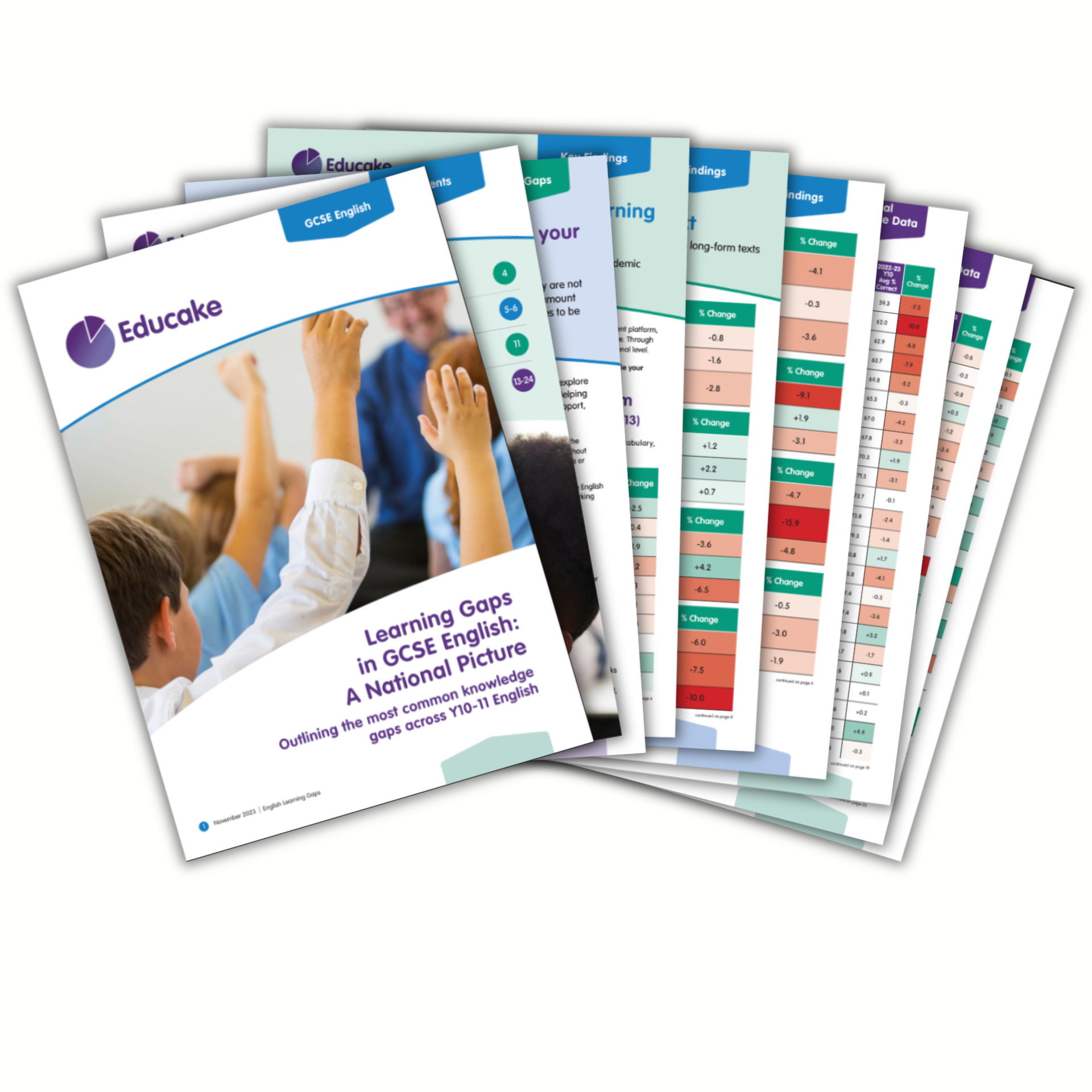Discover the National Knowledge Gaps in Y10-11 English Units
You’re about to access 2 years worth of student data, analysed and segmented to highlight the trickiest topics and units in GCSE English teaching.
Dive into our report that uncovers the most prevalent knowledge and skills gaps across Y10-11 English units. Explore not only what these gaps are, but also why they exist and how you can effectively bridge them for your students.
- English Language
- English Literature
- English Skills

Want to know which topics are tripping up your students?
Start a free trial of Educake today and get personalised, detailed insights into your students’ learning gaps. With auto-marking and easy-to-understand reports, you’ll save time and support your students’ progress with targeted quizzes.
A message from our Founder
Understanding what our students truly grasp is the key to really supporting their academic growth. That’s why I’m excited to share this guide with you – a treasure trove of insights that have been carefully curated over the past two years.

‘Learning Gaps in GCSE English – A National Picture’ has been put together using loads of data points that we’ve gathered on Educake during the past couple of years.
You’ll find information on notoriously tricky skills that students have to contend with in GCSE English. It covers Language, Literature, and Skills. I hope you’ll find it useful.
Whether you’ve been teaching for decades or are just getting started in your career (or somewhere in between), this guide provides handy insight on the most challenging topics. We’ve also considered learning gaps more generally, with examples of what can cause them. Potential issues around motivation, communication and environmental influences are all factors when addressing classroom progress.
We’ve highlighted the top ten tricky topics for English Skills and English Language, and we’ve broken down the top three tricky topics for thirteen different texts you may be using for English Literature. If you want to review the full picture across GCSE English, we’ve also included the complete results, collated from millions of student responses.
If you want to review the full picture across GCSE English, we’ve also included the complete results, collated from millions of student responses.
I hope you’ll agree that this is more than just a data dump. You’re getting up-to-date information on the national understanding of GCSE English, an explanation of learning gaps, and ideas for how to tackle the challenges.
Thanks for reading and I hope you’ll share your feedback with me.
Charley Darbishire
Founder, Educake